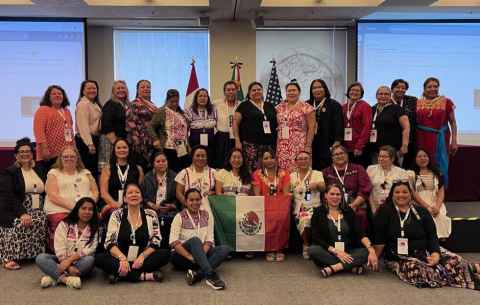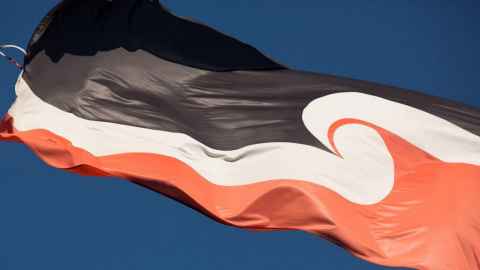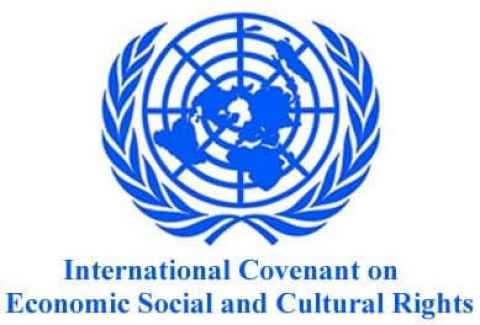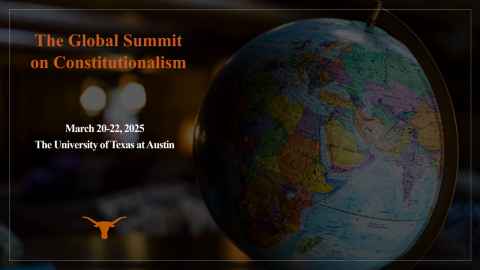Constitutional Transformation
Te Wai Ariki has a particular focus on transformation of Aotearoa New Zealand’s Constitution so that it realises Māori rights and aspirations as expressed in He Whakaputanga, te Tiriti o Waitangi and the UN Declaration on the Rights of Indigenous Peoples.
We are especially interested in structural change to better realise Māori rights to self-determination.
Our work in this area includes research into constitutions in colonised countries where Indigenous peoples’ aspire to forms of self-determination, rights to the return of lands, territories and resources, cultural rights and equality. Professor Charters has a Royal Society Rutherford Fellowship to devise concrete recommendations for constitutional transformation taking into account learning from elsewhere.
Our people also support constitutional transformation in a myriad of ways be it in their involvement in the larger social movement, working with NGOs, on government-appointed working groups, advocacy at the United Nations or in the Waitangi Tribunal and before New Zealand courts.
On this page you will find the following reports:
- Mexico City address - Indigenous women's roopu
- Speaking Notes - ICON-S Conference Sydney Opening Plenary
- Mapping the Movement
- IWGIA Report on Aotearoa
- Is the Incorporation of Indigenous Law into State Law an Expression of Indigenous Peoples’ Self-determination? Theory, Practice, Opportunities and Challenges
- Constitutional Protection of ICESCR Rights: Te Wai Ariki's Advocacy for Māori Economic, Social and Cultural Rights
- State Constitutions and Indigenous Peoples: Some Preliminary Observations from a Global Review
Indigenous Peoples’ Right to Self-Determination and Violence Against Indigenous Women, Girls and Gender Diverse People
Dr Claire Charters addressed the Trilateral Working Group on Violence Against Indigenous Women, Girls and Gender Diverse People in Mexico City on 3 September 2024. She covered the roles of women within te ao Māori, the impacts of colonisation on the self-determination of Indigenous women, recent assessments of Aotearoa New Zealand's human rights obligations towards Indigenous women, a global international perspective on responding to violence against Indigenous women, and recommendations.

ICON-S AUS-NZ Chapter Conference 2024
Claire Charters spoke at the opening plenary conversation of the International Society on Public Law Conference on 29 August 2024. She covered her ongoing Rutherford research into comparative constitutional transformation, analysing international examples of constitutional protections of Indigenous peoples' rights in areas including the United States, Canada, Vanuatu and Chile. Claire also looked at challenges in bringing these international lessons to the Aotearoa New Zealand context.

Mapping the Movement
The Mapping the Movement wānanga was a space for people working across different projects to meet and share the whakapapa, opportunities, and barriers with their mahi in the movement and seek ways to tautoko and collaborate with each other for constitutional transformation.

IWGIA Report on Aotearoa


Is the Incorporation of Indigenous Law into State Law an Expression of Indigenous Peoples’ Self-determination? Theory, Practice, Opportunities and Challenges

Constitutional Protection of ICESCR Rights: Te Wai Ariki's Advocacy for Māori Economic, Social and Cultural Rights

This paper presents Te Puna Rangahau o te Wai Ariki's submission regarding New Zealand's fifth periodic report on implementing the International Covenant on Economic, Social and Cultural Rights (ICESCR), critically analysing the insufficient constitutional protections of these rights with particular focus on impacts for Māori. Te Wai Ariki argues that despite ratifying international human rights treaties, New Zealand's domestic incorporation remains weak, as ICESCR rights lack constitutional entrenchment and cannot be enforced when Parliament overrides them. The submission highlights specific concerns regarding Māori rights to self-determination, equitable working conditions, healthcare, and housing, while criticising the government's misrepresentation of its actions regarding Te Tiriti o Waitangi and recommending full constitutional incorporation of ICESCR rights to address the disproportionate vulnerability of Māori.
State Constitutions and Indigenous Peoples: Some Preliminary Observations from a Global Review

This report is a speech by Prof Claire Charters entitled, State Constitutions and Indigenous Peoples: Some Preliminary Observations from a Global Review, which she presented at the Global Constitutionalism Conference in Austin, Texas on 20 – 22 March 2025.